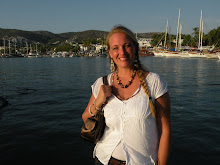Here is a good quote about knowledge, "To be successful with people you must first know more than you can observe"
Here we have a fictitious Father, who was self employed, self made Businessman. He was very serious and never had time for nonsense. He was impatient with his cousin, whose employment was an avid magician. Let us get a glimpse of conversation they are having about what can be trusted. Let's see how the remarks ended:
Businessman: It is truly amazing that you can fool my sense like that. Making things appear and disappear like that.
Magician: Actually such illusions can and do happen all the time. I just stage things to fool the senses of sight, touch and hearing in order to impress. I don't use my knowledge to deceive.
Businessman: But, I could be deceived so easily. I see or should I say, I know that now.
Magician: But, if you are aware of the possibility of your senses fooling you, you can then be on guard not to be fooled but still trust your senses because you must use them daily to wisely deal with the world we live in.
Businessman: Yes, but my most important problems are about my family. I want certainty. I want what I see and hear to be true. Can I also be deceived there?
Magician: Of course. In fact, you have less assurance that what you se and hear when observing people is true. People are much more difficult to observe than physical sight and sounds! Beware!
Businessman: So, what then?
Magician: To be successful with your family you must see and hear more than what you observe.
Rarely you are warned about your senses deceiving you.
Instead you hear things like, "I have to see it to believe it", "I'd have to hear that from the source." These two common phrases are associated with the belief that the most certain knowledge is what we can see or hear.
However, anyone that is acquainted with psychology or philosophy in the early part of the 20th Century knows that what comes to the eyes or ears is not what exists in nature. All sensory input is altered, changed and interpreted by the mind. The popularity and skill of the magician is based on the fact that our senses do not give us an exact certain representation of the physical world.
Bertand Russell (1872-1970), philosopher of science, explains that the color, texture and shape of a table may be very different from what we actually receive through the senses and yet we always know it to be the same table.
We usually admire the man that says, "Show me or prove it to me first." Proving something, or "proving it" means to provide sensory evidence that something is there. And yet, there are many times in our existence where we must act with out this kind of knowledge to survive and prosper. We need to be aware that our hard to observe feelings are a part of reality. Unobservables do guide us to appropriate actions with our marriage partners, especially our feelings and emotions, which are very important in a marriage.
A high level of observable objectivity is of great value, however, it alone cannot answer life's questions about another spirit, feelings and emotions.
Sometimes we must make subjective judgements in the absence of sensory data. It is necessary to add reasoning, to go beyond what we observe.

